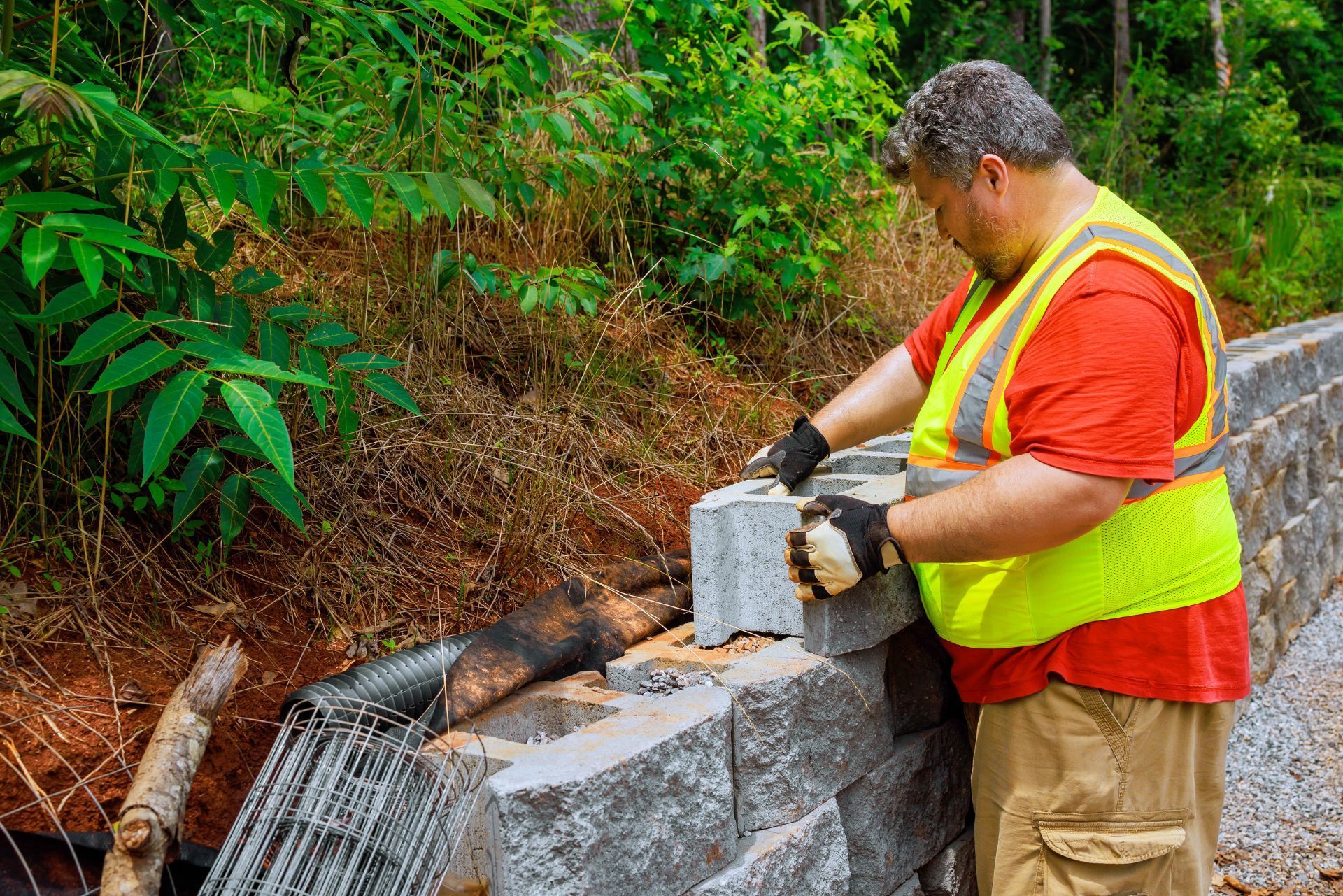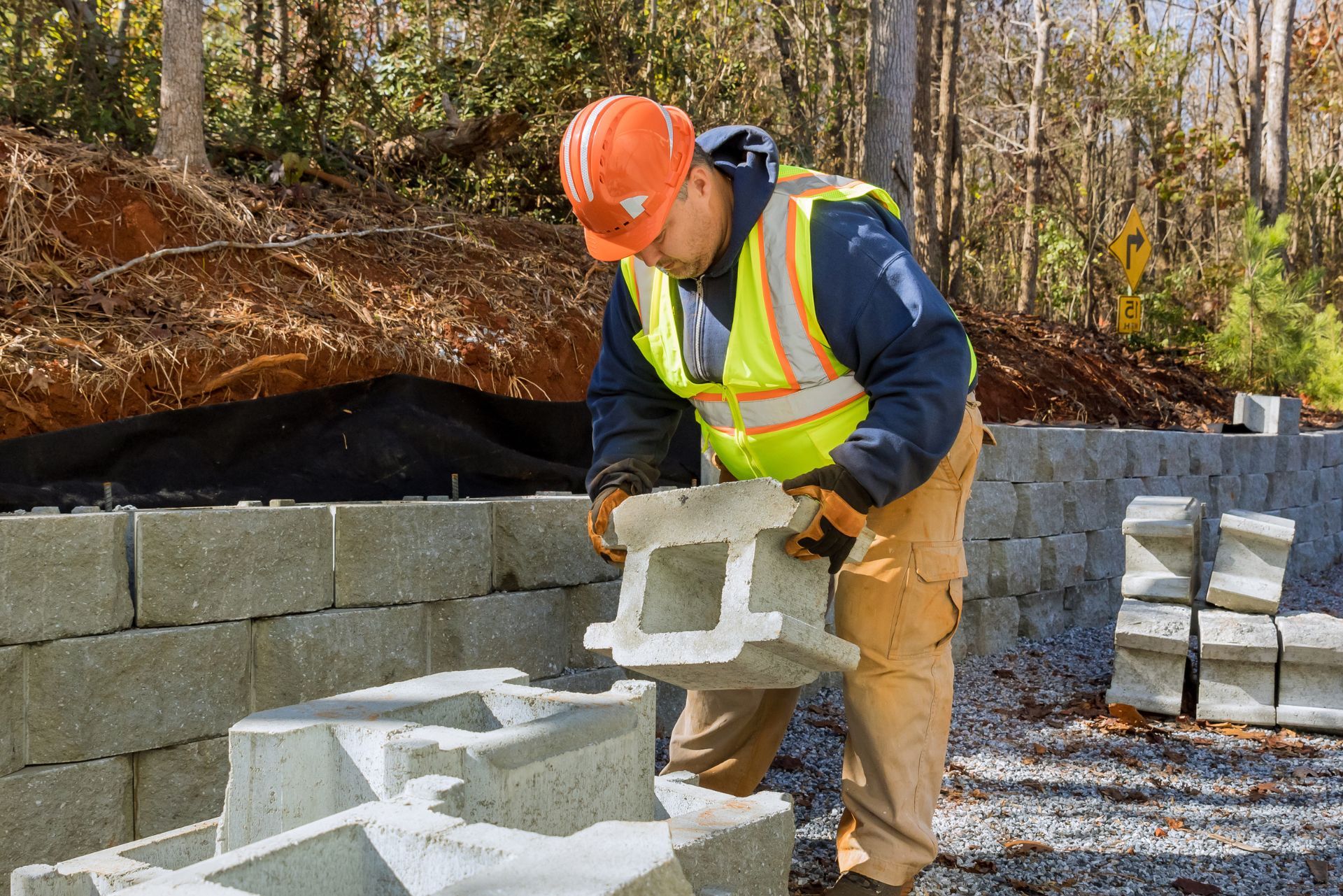Florida Masonry & Stone Contractor Insurance
8:30am - 5:00pm Mon-Fri
Will Reply in 15min*
Top Recommended Business Insurance Policies

Index
Understanding the Florida Masonry Industry Landscape
Key Insurance Coverages for Masonry & Stone Contractors
Factors Influencing Insurance Costs for Florida Masonry Contractors
How to Choose the Right Insurance Provider
Industry Trends Impacting Masonry Contractor Insurance in 2025
Insurance Coverage Comparison for Florida Masonry Contractors
Before You Go: Tips for Masonry Contractors Seeking Insurance
Contact Us
Phone
Location
The Florida masonry industry is a vital part of the state’s construction landscape, projected to generate $2.3 billion in revenue by 2025. With nearly 1,700 establishments and close to 10,000 employees, masonry contractors play a key role in shaping Florida’s residential, commercial, and infrastructure projects. As the industry grows, understanding the nuances of insurance coverage tailored to masonry and stone contractors becomes essential to protect businesses from financial risks and liabilities.
Florida’s construction market remains highly active, fueled by ongoing residential migration, infrastructure development, and a steady pipeline of industrial and hospitality projects. This dynamic environment means masonry contractors face unique exposures that require specialized insurance solutions. This article breaks down what Florida masonry and stone contractors need to know about insurance in 2025, helping business owners make informed decisions to safeguard their operations.
For more insight into Florida’s construction activity and market trends, visit
IBISWorld’s Florida Masonry Industry report.
Understanding the Florida Masonry Industry Landscape
The masonry sector in Florida is not only sizable but also evolving. The recent merger of the Masonry Association of Florida (MAF) and the Florida Masonry Apprentice & Educational Foundation (FMAEF) into Florida Masonry, Inc. signals a strong push toward industry advancement and workforce development. This unified organization aims to provide better training, advocacy, and resources for masonry professionals statewide.
Such developments reflect the ongoing commitment to quality and professionalism in the trade, which also impacts insurance needs. Contractors who engage with Florida Masonry, Inc. can benefit from industry updates, safety programs, and educational resources that may help reduce insurance claims and premiums.
Additionally, the Florida Concrete Masonry Education Council’s "Block Strong Campaign" has made significant strides in promoting masonry’s benefits, reaching 1.8 million website visitors and generating over 1.6 million social media impressions in 2025 alone. This heightened visibility supports demand for masonry services, which in turn influences insurance considerations as contractors take on more complex and higher-value projects.
Moreover, the integration of modern technology into masonry practices is reshaping the industry landscape. Innovations such as 3D printing and advanced masonry tools are allowing contractors to enhance precision and efficiency in their work. These technological advancements not only improve the quality of construction but also streamline processes, leading to reduced labor costs and shorter project timelines. As a result, masonry professionals are increasingly required to adapt and upskill, making ongoing education and training programs even more essential.
Furthermore, the sustainability movement is gaining momentum within the Florida masonry industry. With a growing emphasis on eco-friendly building practices, many masonry companies are exploring the use of recycled materials and sustainable sourcing methods. This shift not only aligns with environmental goals but also appeals to a more conscious consumer base that values green construction. As such, masonry professionals are finding new opportunities to differentiate themselves in a competitive market while contributing positively to the environment.
Key Insurance Coverages for Masonry & Stone Contractors
Masonry and stone contractors face a broad spectrum of risks, from on-site injuries to property damage and contractual liabilities. Understanding the essential types of insurance coverage is crucial for protecting your business against these exposures.
General Liability Insurance
General liability insurance is the cornerstone of coverage for masonry contractors. It protects against third-party claims involving bodily injury, property damage, and personal injury. For example, if a passerby is injured by falling debris or a client’s property is damaged during a project, this coverage helps cover legal fees and settlements.
In Florida, small to medium masonry contractors typically pay between $450 and $650 annually for $1 million per occurrence general liability coverage. This cost-effective protection is vital given the frequent interaction with clients, suppliers, and the public on job sites. Moreover, having robust general liability coverage can enhance a contractor's reputation, as clients often prefer working with insured professionals, knowing that they are safeguarded against potential mishaps.
Workers’ Compensation Insurance
Given the physical nature of masonry work, workers’ compensation insurance is mandatory for most Florida contractors with employees. This coverage addresses medical expenses and lost wages if a worker is injured on the job. It also protects the business from lawsuits related to workplace injuries.
With Florida’s active construction market issuing over 138,000 permits in the second quarter of 2025 alone, the demand for skilled labor and the risk of injury remain high. Adequate workers’ comp coverage is essential to comply with state laws and maintain workforce stability. Furthermore, investing in safety training and equipment can help reduce the likelihood of accidents, which in turn can lead to lower insurance premiums and a healthier work environment.
Commercial Auto Insurance
Masonry contractors often rely on trucks and vans to transport materials and equipment. Commercial auto insurance covers vehicles used for business purposes, protecting against accidents, theft, and damage. This coverage is particularly important in Florida, where traffic conditions and weather events can increase accident risks.
In addition to covering physical damage to vehicles, commercial auto insurance can also provide liability coverage in the event that a contractor is found at fault in an accident. This is crucial, as the costs associated with vehicle accidents can escalate quickly, including repair costs, medical expenses, and potential legal fees. Moreover, having a reliable fleet management system can help contractors keep track of their vehicles and reduce risks associated with transportation.
Builder’s Risk Insurance
Projects involving masonry and stonework often span weeks or months, during which materials and structures are vulnerable to damage from weather, vandalism, or theft. Builder’s risk insurance covers these risks during construction, ensuring that contractors and clients are protected from costly setbacks.
This type of insurance typically covers not only the materials on-site but also any structures that are in the process of being built. It can be particularly beneficial during the unpredictable Florida hurricane season, where high winds and heavy rains can threaten ongoing projects. Additionally, contractors should be aware of the specific terms and conditions of their builder’s risk policy, as some may require the contractor to take certain precautions to mitigate risks, such as securing the site or using weather-resistant materials.
Equipment and Tools Coverage
Specialized masonry tools and heavy equipment represent a significant investment. Insurance that covers loss, theft, or damage to these assets helps contractors avoid unexpected expenses that could disrupt operations.
In addition to protecting against theft and damage,
equipment and tools coverage can also include provisions for rental reimbursement in case of equipment failure. This is particularly important for masonry contractors who rely on specific tools to meet tight project deadlines. Furthermore, maintaining an inventory of tools and regularly updating their value can ensure that contractors are adequately covered and can make informed decisions about their insurance needs as their business grows.

Factors Influencing Insurance Costs for Florida Masonry Contractors
Insurance premiums for masonry and stone contractors in Florida vary based on several factors. Recognizing these can help business owners manage costs without sacrificing coverage quality.
Business Size and Revenue
Smaller contractors with annual revenues around $50,000 typically pay approximately $450 to $650 for general liability insurance. Tile contractors with similar revenues might see premiums closer to $1,360 due to different risk profiles. Larger firms with more employees and higher revenues generally face higher premiums reflecting increased exposure. It's important to note that as a business grows, not only do the insurance costs increase, but the coverage needs also evolve. Larger contractors may require additional policies, such as workers' compensation and commercial auto insurance, which can further impact overall expenditures.
Scope of Work and Project Types
Contractors working on large-scale commercial or hospitality projects may encounter higher insurance costs due to the complexity and value of these jobs. Residential masonry work might carry lower premiums but still requires adequate coverage for property damage and liability. Furthermore, specialized projects, such as historical restorations or intricate stonework, may necessitate additional endorsements or specialized coverage, reflecting the unique risks associated with these types of work. Understanding the nuances of project types can help contractors tailor their insurance policies to better fit their specific needs.
Claims History and Safety Practices
Insurers assess a contractor’s claims history when determining premiums. Businesses with fewer claims and strong safety programs often qualify for discounts. Engaging with industry organizations like Florida Masonry, Inc. can provide access to safety training that helps reduce risks. Additionally, implementing proactive safety measures, such as regular equipment inspections and employee safety workshops, can not only mitigate potential accidents but also enhance a contractor's reputation in the industry, potentially leading to more favorable insurance terms in the future.
Location and Regulatory Environment
Operating in Florida means contending with unique risks such as
hurricanes and flooding, which can influence insurance rates. Additionally, compliance with state licensing and insurance requirements impacts coverage options and costs. The geographical diversity across Florida also plays a role; contractors in coastal areas may face different risks compared to those in inland regions. Understanding local regulations, including zoning laws and environmental considerations, can help contractors navigate the insurance landscape more effectively, ensuring they are adequately protected against the specific challenges posed by their operational environment.
How to Choose the Right Insurance Provider
Selecting an insurance provider that understands the masonry industry and Florida’s construction market is vital. Look for companies offering tailored policies that address the specific risks masonry contractors face.
Consider providers with experience in contractor insurance and those who offer comprehensive packages including general liability, workers’ compensation, and equipment coverage. Transparent pricing and responsive claims handling are equally important.
Consulting with insurance brokers who specialize in construction and masonry insurance can help identify the best coverage options at competitive rates.

Industry Trends Impacting Masonry Contractor Insurance in 2025
Florida’s construction industry continues to thrive, with over 138,000 permits issued in just one quarter of 2025, representing nearly 20% of the national total. This growth drives demand for masonry services but also increases exposure to potential claims.
The formation of Florida Masonry, Inc. in April 2025 reflects a strategic effort to unify the industry and promote best practices, which can lead to safer job sites and potentially lower insurance costs over time.
Moreover, the Block Strong Campaign’s success in raising awareness about masonry’s benefits highlights the sector’s expanding role in Florida’s construction ecosystem. As projects grow in scale and complexity, insurance needs will evolve accordingly.
For a closer look at Florida’s construction market dynamics, visit
Estimate Florida Consulting’s construction cost insights.
Insurance Coverage Comparison for Florida Masonry Contractors
| Coverage Type | Purpose | Typical Annual Cost (Small Business) | Key Benefits |
|---|---|---|---|
| General Liability | Protects against third-party injury and property damage claims | $450–$650 | Legal defense, settlements, client confidence |
| Workers’ Compensation | Covers employee injuries and related medical expenses | Varies by payroll and risk | Compliance, employee protection, lawsuit prevention |
| Commercial Auto | Insures business vehicles against accidents and damage | Varies by vehicle and usage | Vehicle protection, liability coverage |
| Builder’s Risk | Covers property under construction from damage or loss | Project-dependent | Protects materials, structures, and investments |
| Equipment & Tools | Protects tools and equipment from theft or damage | Varies by value | Minimizes downtime, replacement costs |
Before You Go: Tips for Masonry Contractors Seeking Insurance
Start by assessing your business risks carefully. Consider the types of projects you undertake, the size of your crew, and your equipment inventory. This will guide you toward the right coverage levels.
Engage with professional associations like Florida Masonry, Inc. to stay informed about industry best practices and safety programs that can positively impact your insurance premiums.
Request quotes from multiple insurers and compare not only price but also coverage details, exclusions, and claims support. The cheapest policy may not always provide the protection your business needs.
Keep detailed records of safety training, equipment maintenance, and claims history. These documents can help you negotiate better terms and demonstrate your commitment to risk management.
Frequently Asked Questions
Q: Is general liability insurance mandatory for masonry contractors in Florida?
A: While not legally required, it is highly recommended as it protects against common risks like property damage and bodily injury claims.
Q: How much does workers’ compensation insurance cost for masonry contractors?
A: Costs vary based on payroll and risk factors, but it is required if you have employees working on job sites.
Q: Can I bundle different insurance coverages for my masonry business?
A: Yes, many insurers offer package policies that combine general liability, workers’ comp, and commercial auto for convenience and potential savings.
Q: How does Florida’s weather affect masonry contractor insurance?
Weather risks like hurricanes can increase premiums, especially for builder’s risk and equipment coverage.
Q: What should I look for in an insurance provider?
Choose a provider experienced with masonry contractors, offering tailored coverage, clear terms, and responsive claims service.








